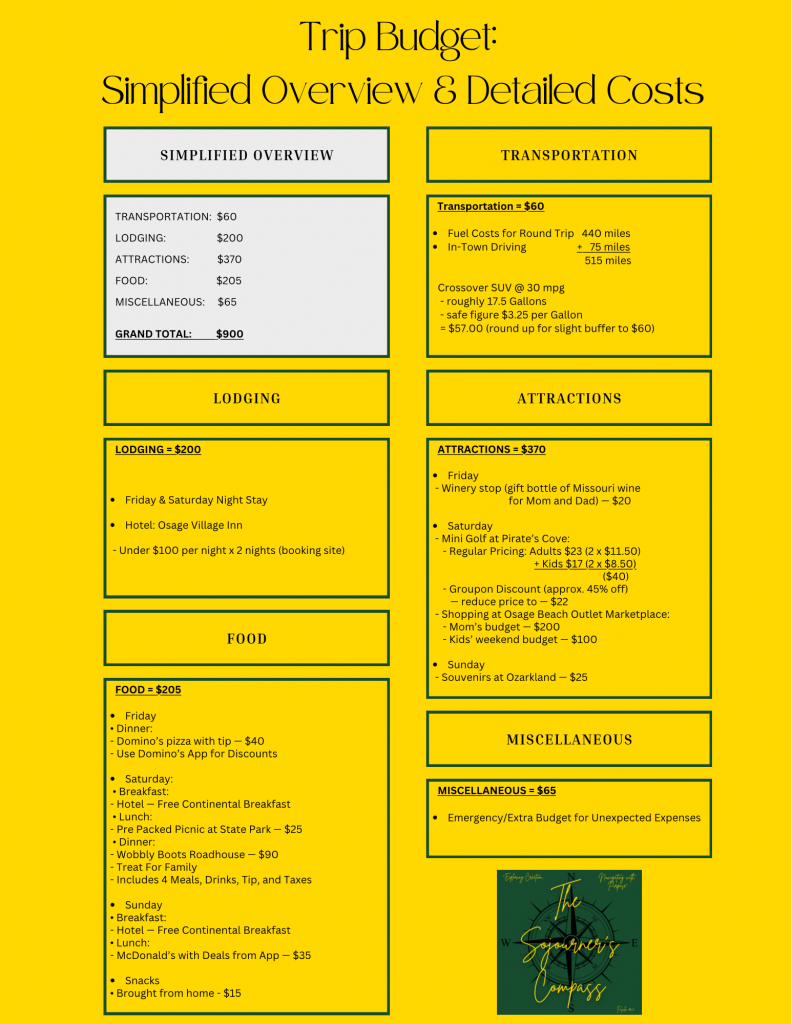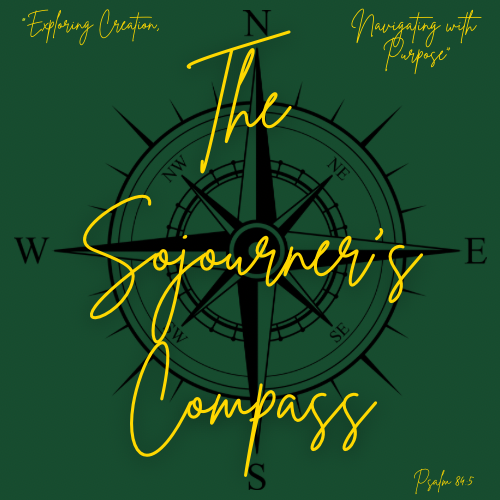Traveling on a Budget: Crafting the Perfect Itinerary (Part 4)
Smart Budgeting: Wrapping Up the Budget Travel Series
Budget travel isn’t just about cutting costs—it’s about strategic planning that maximizes every dollar while keeping the experience enjoyable. Over the past three parts of this series, we’ve covered practical budgeting tactics, cost-saving strategies, and itinerary-building techniques designed to help travelers make the most of their journeys. Now, in this final installment, we’re bringing everything together.
This post isn’t simply about spending less—it’s about making smart choices that allow for greater freedom, flexibility, and value while traveling. By structuring a trip with financial efficiency in mind, travelers can eliminate stress, anticipate costs, and avoid unnecessary surprises without sacrificing meaningful experiences.
Before diving into the specifics, let’s take a step back and look at the bigger picture:
- Where the money goes – breaking down travel expenses into manageable sections
- Why planning matters – how strategic budgeting transforms the overall experience
- What you gain – the long-term benefits of smart financial decisions
With these principles in mind, let’s explore how budgeting can work in direct relation to the itinerary—ensuring every dollar is spent where it matters most.

Budgeting Based on the Itinerary: Maximizing Travel Efficiency
A well-structured itinerary is the foundation of a smart travel budget. Planning with efficiency in mind helps maximize experiences while minimizing unnecessary costs.
Breaking Down Expenses Across Key Categories:
- Lodging – Balancing cost and convenience. Booking early or bundling stays can reduce rates.
- Transportation – Mapping out travel in advance saves money on fuel or transit passes. Grouping activities within walking distance helps cut costs further.
- Food – Mixing budget-friendly meals with selective splurges keeps spending in check without sacrificing local flavors.
- Activities – Prioritizing free or discounted attractions ensures every outing is worth the cost.
Strategies for Optimizing Expenses:
- Smart grouping – Organizing stops by location prevents unnecessary travel costs.
- Pacing for efficiency – Avoiding rushed itineraries reduces last-minute, overpriced purchases.
- Budgeting with flexibility – Leaving room for unexpected opportunities keeps travel enjoyable.
Aligning itinerary planning with budgeting makes financial management a tool for better experiences rather than a limitation.
Efficient Trip Management: Keeping Costs Under Control in Any Situation
No trip goes exactly as planned, but smart budgeting helps manage surprises without major financial setbacks. Unexpected expenses can arise from weather changes, detours, or last-minute needs.
Preparing for the Unexpected:
- Emergency budget allocations – Setting aside a small contingency fund prevents big setbacks.
- Adaptability – Adjusting plans quickly helps maintain budget efficiency without losing enjoyment.
- Backup options – Alternative routes, accommodations, or meal choices ensure flexibility.
Strategies to Minimize Impact:
- Incremental adjustments – Small spending shifts reduce the financial burden of surprises.
- Prioritization – Deciding what to cut or adjust helps maintain the most valuable experiences.
- Mindset – Viewing unexpected expenses as manageable rather than disruptive keeps travel stress-free.
With smart planning, financial flexibility ensures unexpected situations do not derail the trip.
Cost-Conscious Travel: Cutting Costs Without Cutting Experiences
Small savings add up over the course of a trip, making a significant impact on overall affordability. A well-balanced approach helps travelers decide when to cut costs and when to invest in experiences without compromising the quality of the journey.
Cost-Saving Tactics:
- Fuel efficiency – Planning routes and filling up at lower-cost stations reduces expenses.
- Loyalty programs – Using reward points for flights, hotels, or dining lowers overall costs.
- Meal discounts – Combining grocery shopping with occasional restaurant meals keeps food spending balanced.
Balancing Quality and Affordability:
- Choosing value over price – Opting for experiences that offer the best return rather than the lowest cost.
- Researching ahead – Finding deals before arrival helps reduce impulse spending.
- Investing in key experiences – Prioritizing meaningful activities while saving in less impactful areas.
Budget-conscious travel is about making deliberate choices that enhance the trip rather than limit it.
Affordable Adventures: Applying Budgeting Lessons to Future Travel
Smart budgeting isn’t just a strategy for one trip—it’s a skill that can transform travel experiences for years to come. When approached with planning, flexibility, and efficiency, budgeting becomes a tool for unlocking more opportunities, not limiting them.
Key Takeaways for Future Travel:
- Planning ahead eliminates financial stress and allows for better decision-making.
- Budgeting strategically means spending wisely, not restricting enjoyment.
- Flexibility ensures unexpected changes won’t derail an itinerary.
- Smart spending habits carry over, making travel more frequent and sustainable.
Budget-conscious travel doesn’t mean sacrificing quality—it means making intentional choices that enhance the journey. The more refined the planning process becomes, the more rewarding each trip will be.
Now it’s time to take action. Start planning your next trip with a budget that works for you—choose your destination, outline your priorities, and build an itinerary that maximizes value. Smart planning means more travel, more experiences, and fewer financial headaches.


Leave a Reply